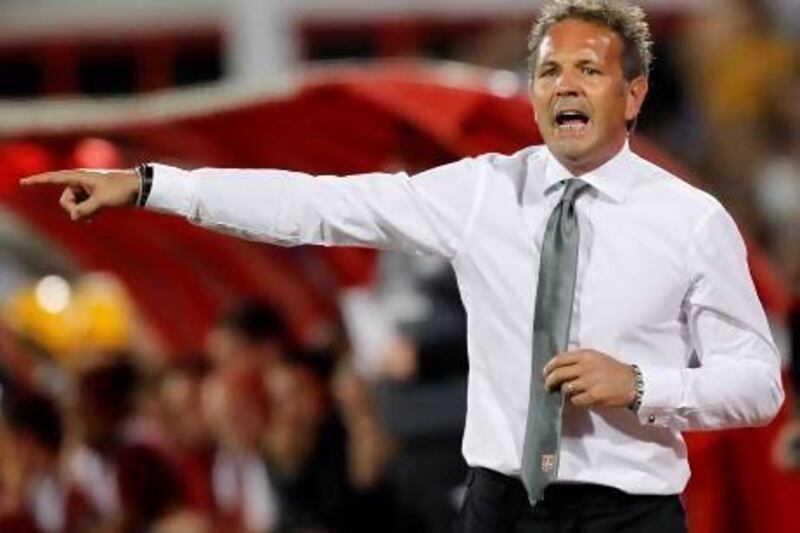The road to Rio de Janeiro has many beginnings, but for Serbia it began in Rio, the incongruous name given to a patch of rough ground in Borovo Naselje, a district of Vukovar in eastern Croatia.
It was there, between the wind-ravaged shrubs from which plastic bags flutter, that Sinisa Mihajlovic, the Serbia coach, learnt to play.
That he grew up in Croatia is only the start of the complexity of the Mihajlovic tale.
His mother is a Croat, his father was a Serb.
He became known for the closeness of his relationship with Arkan, the indicted war criminal who led Serbian paramilitary groups during the war, and yet his uncle was an officer in the Croatian army. After the fall of Vukovar following a three-month siege in 1991, Mihajlovic's uncle was captured. Arkan called the player, telling him to come and pick up his uncle before he was murdered.
The popular image of Mihajlovic as a snarling Serb nationalist is a distorted and crude stereotype.
"Do you really think he could be a nationalist like that when his mother is Croatian?" said Sinisa Lazic, who played with him from the age of 12.
The issue will be brought into focus tonight by the World Cup qualifier between Croatia, managed by Mihajlovic's long-time bete noir, Igor Stimac, and Mihajlovic's Serbia.
Mihajlovic has sought to play down the obvious tensions, and yet at the same time he has admitted he would give three years of his life to play in the game and that the fixture was one of the reasons he agreed to become national manager.
Serbia have never played Croatia under their present nomenclature, but Mihajlovic was part of the Yugoslavia side (consisting of Serbia and Montenegro) that played Croatia in qualifying for Euro 2000. The game finished 2-2, which meant Yugoslavia progressed but Croatia did not.
"The stadium in Zagreb was like a volcano," Mihajlovic said. "There were police everywhere. The war between the two countries was still fresh in everyone's minds. There were lots of former teammates who had played alongside each other for Yugoslavia now facing each other.
"There was a banner there, 'Vukovar 1991', the city that was so symbolic of the war. The city where I, the son of a Croatian mother and Serbian father, was born and grew up. I walked towards it, knelt down and did the sign of the cross in remembrance of all the Serbs who had fallen in the war.
"It almost brought the entire stadium down. Insult after insult was hurled at me. Every time I went up to take a free-kick or a corner, the tension was high. I hit the woodwork twice: once the post, another time the crossbar. And I also played a part in our two goals.
"The next day, the Serbian papers gave me 10 out of 10 for my performance. That game remains the most emotional game of my career. I'll never forget it."
Vukovar still bears the scars of war. Many houses still lie in ruins, bullet holes dot others. Even many of the new houses were built only to replace houses destroyed in the fighting.
The house in which Mihajlovic grew up, where his father had to replace the garage door every few weeks because Mihajlovic destroyed them by practising free-kicks, shows the telltale fresh redness of new bricks.
His house was destroyed when Croatians took the town; one of his friends, an ethnic Croat, even told how he had to show photographs of Mihajlovic found in the house to prove to his fellow Croats that he was really on their side.
Mihajlovic is by some way the most famous sportsman to come from the town, whose population of 31,000 is still only around two-thirds of what it was before the war, yet he cannot easily go back because he is so disliked by the Croatian majority.
"If it was a normal person - [Nemanja] Vidic or [Edin] Dzeko, say - people would shake his hand," said Lazic, "but not with Sinisa."
Mihajlovic grew up in a town where Croats and Serbs happily played together. He is of mixed blood. But the war changes everything; there will be no away fans in the Maksimir tonight, but the atmosphere remains tense.





